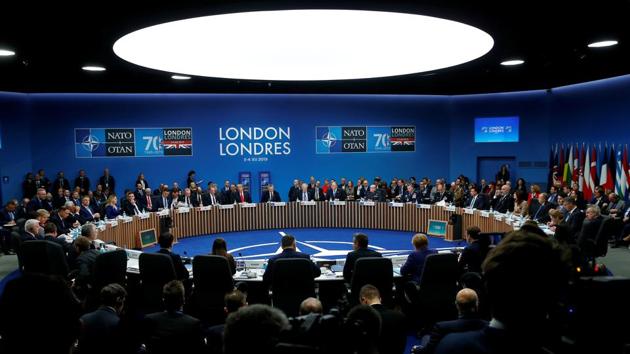At 70, NATO is weak and divided | HT Editorial
It, however, has a role to play in the global balance of power
The North Atlantic Treaty Organization (NATO) is celebrating its 70th anniversary. While the logic of the alliance is stronger today than it has been since the Cold War’s end, it lacks a consensus on what constitutes its primary threat. The debate on prioritisation and tactics is dragging on because of the nature of political leaders in its anchor members.

The big fissure is about how to tackle a newly aggressive Russia. The United States is schizophrenic, with President Donald Trump an unabashed admirer of Moscow while the rest of his government sees in it a new Soviet Union. The Europeans are almost as divided. Germany and France feel engagement with Russia remains important, while central Europeans are fiercely opposed to their former coloniser. Turkey has the second largest military in NATO, but is increasingly taking an independent line when it comes to Syria, Russia and even the Islamic State. There are also murmurs that NATO needs to look more closely at China. Beijing is making major inroads into Europe’s digital and infrastructure space: 10% of Europe’s ports are owned or run by Chinese firms. All of this is compounded by differing approaches to NATO itself. Britain hosted the summit but was distracted by another Brexit election. France is resurrecting ideas of a Euro-centric security system. Mr Trump is ambivalent about the alliance. Germany takes a fatalistic approach to the alliance.
In the past, India tended to see NATO as an instrument of Western dominance. It saw the alliance’s dilution as contributing to the creation of a multipolar world. But that formulation is questionable today. NATO’s first major military action after the Soviet collapse was against al-Qaeda and the Taliban. And while New Delhi has a different, more positive, view of Moscow than many members of NATO, it is also evident that any recession of Western influence ultimately benefits China. Though it is geopolitically still an arm’s length away, India increasingly has an interest in seeing NATO remain a source of global stability and a contributor to a balance of power preferred by New Delhi.






